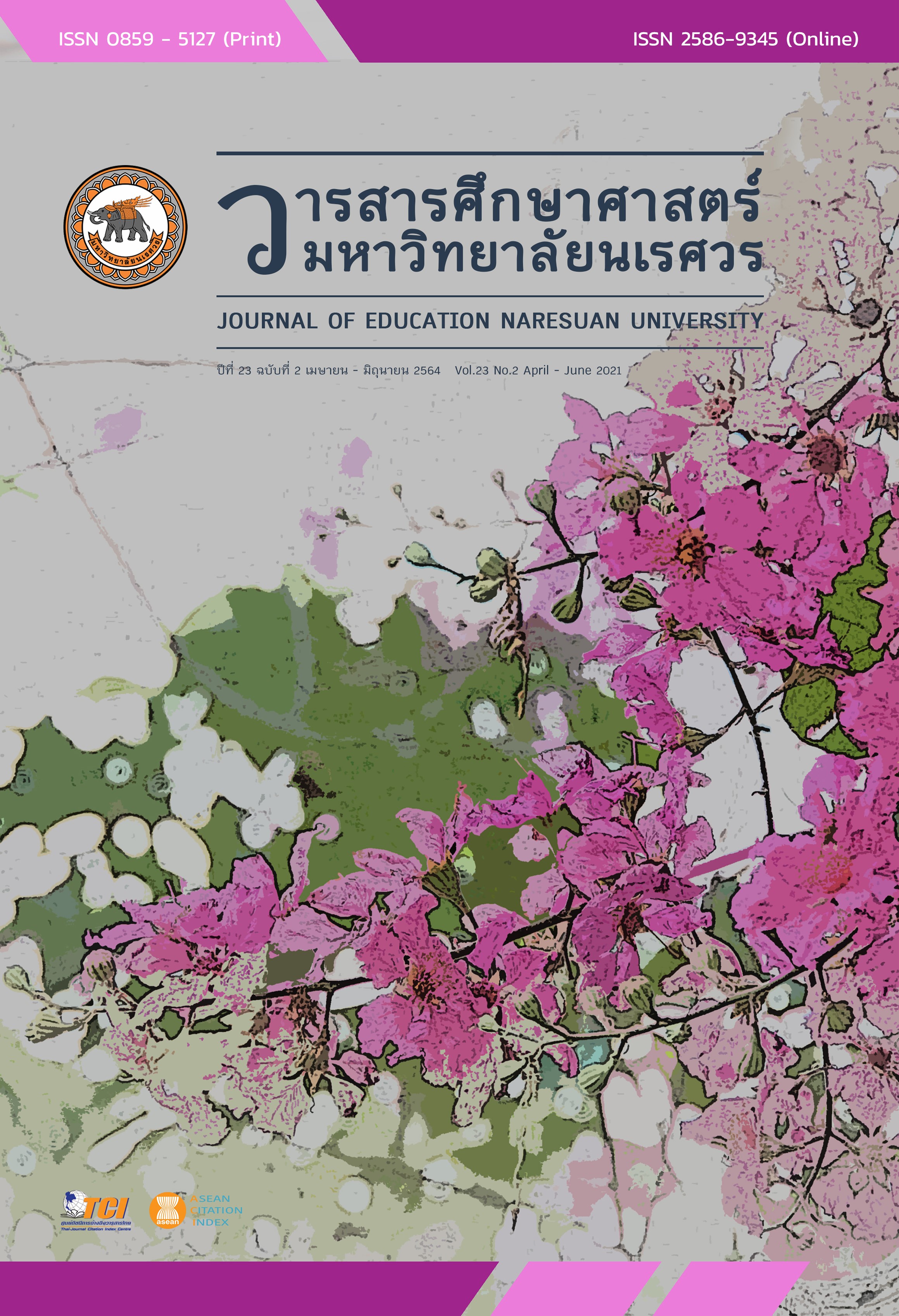PARTICIPATORY DEVELOPMENT OF AGRICULTURAL LEARNING ACTIVITIES WITH NETWORK PARTIES การพัฒนากิจกรรมการเรียนรู้เกษตรอย่างมีส่วนร่วมกับภาคีเครือข่าย
Main Article Content
Abstract
This study aimed to 1) explore basic data and explore the needs of schools and communities, 2) development of agricultural learning activities with network parties, and 3) monitor and assess agricultural learning activities. The research methodology in this study consisted of 3 steps as follows; 1) developed the research questions and found needs of networks and the community comprising: (1) researchers and students, (2) Phraibueng Wittayakom School administrators and agriculture teachers, and (3) one community leader, 5 guardians, and 3 representatives of the agriculture teacher club in Srisaket Province and all of them were obtained by purposive sampling, 2) designed and prepared agricultural learning activities and tried out with 115 third year secondary school students and pretest/posttest together with satisfaction assessment form were employed, and 3) assessed the agricultural learning activities, made conclusions, and developed a guideline for agricultural knowledge transfer by focus group discussion with stakeholders. Obtained data were analyzed for finding mean, and standard deviation. Findings showed that Phraibueng Wittayakom School is located at No. 50, Moo 20, Prai Bueng District, Prai Bueng District, Si Sa Ket Province. With a total area of 229 rai, 96 square wah, with 123 personnel in total. Agricultural knowledge development of students should be developed based on consistency with real life of the students. Besides, agricultural teaching/ learning facilitation must convince them to perceive the benefits particularly on one stop native chicken raising. Regarding the knowledge assessment before and after learning, it was found that the students had knowledge of native chicken raising in all learning bases which was higher than before learning with a statistical significance level at .05. Besides, they had a high level of satisfaction with their participation in the learning activities ( = 0.24, S.D. = 0.26). Based on its details the students had the highest level of satisfaction with the second learning base (native chicken raising) (
= 4.60, S.D. = 0.49). In addition, the scholars agreed that native chicken raising had a high level of appropriateness (
= 3.91, S.D. = 0.29).
Article Details
The owner of the article does not copy or violate any of its copyright. If any copyright infringement occurs or prosecution, in any case, the Editorial Board is not involved in all the rights to the owner of the article to be performed.
References
Cronbach, L. J. (1970). Essentials of psychological testing (3rd ed.). New York: Harper and Row.
Detyothin, O., Singsriwo, A., & Suksringarm, P. (2017). The development of environmental literacy of mattayomsuksa 3 student using the project-based teaching with problem-solving thinking. Journal of Education Naresuan University, 19(2), 305-317. [in Thai]
Dewey, J. (1963). Experience and education. New York: Macmillan Publishing Company.
Erwin, W. (1976). Participation management: Concept theory and implementation. Atlanta: Georgia State University.
Khammani, T. (2017). Science of teaching: The body of knowledge for effective learning process facilitation (21th ed.). Bangkok: Chulalongkorn University Press. [in Thai]
Kolb, D. A., Rubin, I. M., & McIntyre, J. M. (1984). Organizational psychology: A book of readings (4th ed.). New Jersey: Prentice Hall.
Ministry of Education. (2008). Basic Education Curriculum 2008. Bangkok: The Agricultural Cooperative Federation of Thailand. [in Thai]
Office of the National Economic and Social Development Board. (2017). The twelfth national economic and social development plan (2017-2021). Bangkok: Office of the Prime Minister. [in Thai]
Office of the Education Council. (2017). National scheme of education of B.E. 2560-2579 (2017-2021). Bangkok: Prikwarn Graphic. [in Thai]


